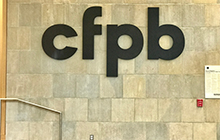 On April 21, 2022, the Consumer Financial Protection Bureau (CFPB) announced a joint enforcement action with the New York Attorney General (NY AG) against one of the largest international remittance providers in the United States. The seven-count complaint, filed in U.S. District Court for the Southern District of New York, challenges the Dallas-based company’s remittance transfer (international money transfer) and error resolution practices.
On April 21, 2022, the Consumer Financial Protection Bureau (CFPB) announced a joint enforcement action with the New York Attorney General (NY AG) against one of the largest international remittance providers in the United States. The seven-count complaint, filed in U.S. District Court for the Southern District of New York, challenges the Dallas-based company’s remittance transfer (international money transfer) and error resolution practices.
The suit alleges that the defendant failed to correct significant deficiencies in its remittance transfer systems that were identified during a CFPB examination in 2014 and re-examination in 2019. Specifically, the Bureau alleged that the company failed to provide its customers with accurate information on the dates of funds availability, failed to investigate or remedy errors with payments, failed to adequately notify cardholders and/or explain the results of the company’s error resolution investigation, and failed to develop adequate error resolution and document retention procedures.
The CFPB alleges that the company’s failure to remediate the matters identified in the examination, and its continued practices, violated the Remittance Rule of Regulation E and related error resolution requirements, and asserts separate violations of the Consumer Financial Protection Act (CFPA). The NY AG, asserting its right to enforce consumer protection laws in federal court under Section 5552 of the CFPA, alleges additional violations of Regulation E. The agencies are seeking a permanent injunction and unspecified monetary relief.
CFPB Director Rohit Chopra commented on the lawsuit in prepared remarks saying that the lawsuit “highlights several areas of interest for the CFPB,” including “deepening” cooperation with state attorneys general and cracking down on “broader problems in payments and international money transfer markets.” The CFPB’s press release added that the Bureau considers the defendant a “repeat offender,” citing the company’s 2009 settlement with the Federal Trade Commission (FTC) and a 2012 deferred prosecution agreement with the Department of Justice (DOJ), in addition to the alleged deficiencies identified during prior CFPB exams.
